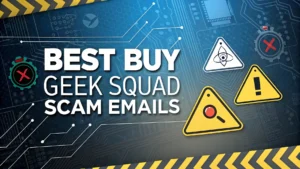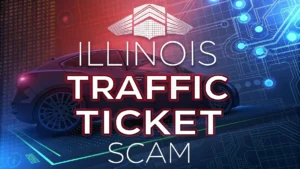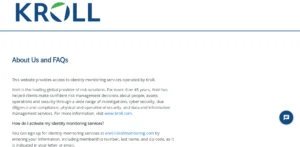The California Franchise Tax Board (FTB) is a trusted name when it comes to taxes in California. But did you know that scammers sometimes pretend to be the FTB to trick people?
These scams can cause a lot of trouble for taxpayers. In this blog post, we will explain what these scams are and how you can protect yourself from them.
Keep reading to learn important tips and tricks so you don’t fall into the trap of these sneaky scammers.
Key Takeaways
- Scammers pretend to be the FTB. They use fake emails, calls, or text messages to steal your money or personal information. Always double-check before responding to any suspicious message.
- Prepaid debit cards are a red flag. If someone tells you to send money using prepaid debit cards, it’s probably a scam. The real FTB will never ask for payment this way.
- Phishing emails are common. Scammers send emails that look like they’re from the FTB but they are not. Never click on links or download attachments from unknown sources.
- Protect your identity. Be careful about sharing your Social Security number or bank details online. Scammers may use this information to commit fraud.
- Report scams immediately. If you think you’ve been targeted by a scam, contact the FTB right away. Reporting helps stop scammers from hurting others.
Now let’s dive deeper into everything you need to know about California Franchise Tax Board scams.
What is the California Franchise Tax Board?
The California Franchise Tax Board, also known as the FTB, is an important organization in California. It collects taxes from people and businesses living in the state. Think of it as a group that makes sure everyone pays their fair share. This money goes toward schools, roads, and other public services.
The FTB works hard to help people file their taxes correctly. They provide tools and resources to make tax filing easy. But because the FTB is well-known, scammers often try to take advantage of its reputation. They create fake messages pretending to be the FTB to trick people into giving them money or personal details.
Understanding what the FTB does is the first step in protecting yourself. The FTB will never call or email you out of the blue asking for money. They follow strict rules to ensure fairness. If you get a strange message claiming to be from the FTB, pause and investigate further before taking any action.
Remember, the FTB is here to help, not to scare you. Knowing how they operate can keep you safe from scams.
How Do Scammers Pretend to Be the FTB?
Scammers are clever, and they use many tricks to fool people. One common method is sending fake emails or text messages. These messages might say you owe money or that you have a refund waiting for you. The goal is to make you act quickly without thinking.
For example, a scammer might send an email with a link to a website. This website looks official, but it’s actually fake. When you enter your information, the scammer steals it. Another trick is making phone calls. The caller might claim to be from the FTB and demand immediate payment. They often sound urgent to scare you into complying.
Some scammers even use real FTB phone numbers to seem more believable. But the real FTB will never ask for payment over the phone. If someone says you must pay using a prepaid debit card or wire transfer, it’s a scam. These payment methods are untraceable, which is why scammers love them.
Stay alert and remember the FTB communicates through official channels. If something feels off, trust your instincts and verify before doing anything.
Why Are Prepaid Debit Cards a Warning Sign?
One of the biggest red flags in FTB scams is the request for prepaid debit cards. Scammers love this method because it’s fast and hard to trace. If someone tells you to buy a prepaid card and send it to them, stop right there. The real FTB will never ask you to pay this way.
Prepaid debit cards are like cash. Once you send them, you can’t get the money back. Scammers know this and use it to their advantage. They might say you owe taxes or face penalties if you don’t pay immediately. Their goal is to scare you into acting without thinking.
Another reason prepaid cards are risky is that they bypass banks. Banks can help protect you from fraud, but prepaid cards don’t offer this safety net. Always pay attention to how someone asks for money. Legitimate organizations like the FTB will give you time to review your bill and offer secure payment options.
If you ever feel pressured to use a prepaid card, hang up or delete the message. Take a deep breath and check with the FTB directly to see if the request is real.
How to Spot a Phishing Email
Phishing emails are one of the most common ways scammers try to trick people. These emails look like they come from the FTB but they are fake. The goal is to get you to click on a link or download an attachment.
One way to spot a phishing email is by looking at the sender’s address. It might look similar to the FTB’s real address but with small changes. For example, instead of ftb.ca.gov, it might say ftb-tax.com. This tiny difference is a big clue that the email is fake.
Another warning sign is poor spelling or grammar. Legitimate emails from the FTB are always professional and error-free. If you see mistakes or strange wording, be cautious. Also, watch out for urgent language like “Pay now” or “Your account will be closed.” The real FTB gives you time to respond and won’t threaten you.
If you get a suspicious email, don’t click on any links. Instead, go to the FTB’s official website and log in to your account there. This way, you can check for updates safely.
How to Protect Your Personal Information
Keeping your personal information safe is very important. Scammers want details like your Social Security number or bank account information. Once they have this data, they can steal your identity and cause a lot of trouble.
One way to protect yourself is by using strong passwords. Mix letters, numbers, and symbols to make your passwords hard to guess. Don’t use the same password for every account either. This way, if one account gets hacked, the others stay safe.
Be careful about sharing information online too. Only give out personal details when you’re sure the website is secure. Look for “https” in the web address. This means the site uses encryption to protect your data. Also, avoid posting sensitive information on social media where scammers can find it easily.
If you think your information has been stolen, act fast. Contact your bank and the FTB right away. They can help you stop scammers from causing more harm.
What to Do If You Think You’re Being Scammed
If you suspect a scam, don’t panic. There are steps you can take to protect yourself. The first thing to do is stop communicating with the scammer. Don’t reply to emails or calls, and don’t send any money.
Next, report the scam to the authorities. You can contact the California Franchise Tax Board directly. They have a team that investigates scams and helps victims. You can also file a complaint with the Federal Trade Commission (FTC). These agencies work together to stop scammers.
Finally, warn your friends and family. Scammers often target multiple people at once. By sharing your experience, you can help others avoid falling into the same trap. Use social media or word of mouth to spread the word.
Remember, staying calm and taking action quickly can make a big difference.
FAQs About California FTB Scams
What Should I Do If I Get a Suspicious Call?
If you get a call claiming to be from the FTB, hang up. The real FTB will never call you unexpectedly.
Can I Trust Emails From the FTB?
Always double-check the sender’s email address. If it doesn’t end with ftb.ca.gov, it’s likely a scam.
How Can I Report a Scam?
You can report scams to the FTB or the FTC. Both organizations take these reports seriously and investigate them.




























